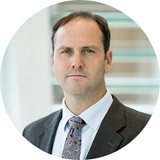Global Ocean Legacy's Science Advisory Board
The Pew Charitable Trusts’ Global Ocean Legacy (GOL) campaign is proud to introduce its Scientific Advisory Board, composed of nine esteemed scientists with expertise in marine biology and fisheries disciplines. This board was created to build collaboration and dialogue among GOL staff, partners, and the scientific community.
The board members are Juan Carlos Castilla, Ph.D; Philippe Cury, Ph.D.; Douglas McCauley, Ph.D.; Daniel Pauly, Ph.D.; Bob Richmond, Ph.D.; Callum Roberts, Ph.D.; Andrea Sáenz-Arroyo, Ph.D.; Rashid Sumaila, Ph.D.; and Boris Worm, Ph.D.
Each of these experts brings extensive knowledge to help guide GOL in protecting the last near-pristine ocean waters on Earth. They do this by identifying critical science questions and research needs, developing the rationale for new protected areas, advising us on strategy, and helping advocate for the creation of the next generation of great marine parks.
Global Ocean Legacy uses rigorous and verified scientific findings as the framework for its efforts to establish large-scale, fully protected marine reserves. Before pursuing the designation of a new site, GOL commissions studies on the biodiversity of the region, including fish species, seabirds, marine mammals, coral health, and threats to the ecosystem.
Please click the links below for more details about each member of Global Ocean Legacy’s Scientific Advisory Board:
Juan Carlos Castilla, professor, Center for Advanced Studies in Ecology and Biodiversity, Pontificia Universidad Católica de Chile
Philippe Cury, director, Centre de Recherche Halieutique Méditerranéenne et Tropicale, Sète, France; member, International Advisory Council, University of British Columbia
Douglas McCauley, assistant professor, department of ecology, evolution, and marine biology, University of California, Santa Barbara
Daniel Pauly, professor, Institute for the Oceans and Fisheries & Department of Zoology, University of British Columbia; principal investigator, Sea Around Us
Bob Richmond, professor, Pacific Biosciences Research Center, University of Hawaii, Manoa; director, University of Hawaii’s Kewalo Marine Laboratory
Callum Roberts, professor, environment department, University of York
Andrea Sáenz-Arroyo, professor and principal researcher, department of biodiversity conservation, El Colegio de la Frontera Sur (ECOSUR)
Rashid Sumaila, director and professor, Fisheries Economics Research Unit, University of British Columbia; associated faculty, Sea Around Us
Boris Worm, professor, biology department, Dalhousie University
Global Ocean Legacy, a project of Pew and its partners, is establishing a worldwide system of very large, fully protected marine reserves where fishing and other extractive activities are prohibited. GOL works with local citizens, governments, and scientists around the world to protect and conserve some of the Earth’s most important and unspoiled marine environments. To date, its efforts have helped to double the amount of safeguarded ocean habitat worldwide.
This page was updated on August 28, 2015 and again on October 21, 2016 to reflect the addition of new advisory board members.












